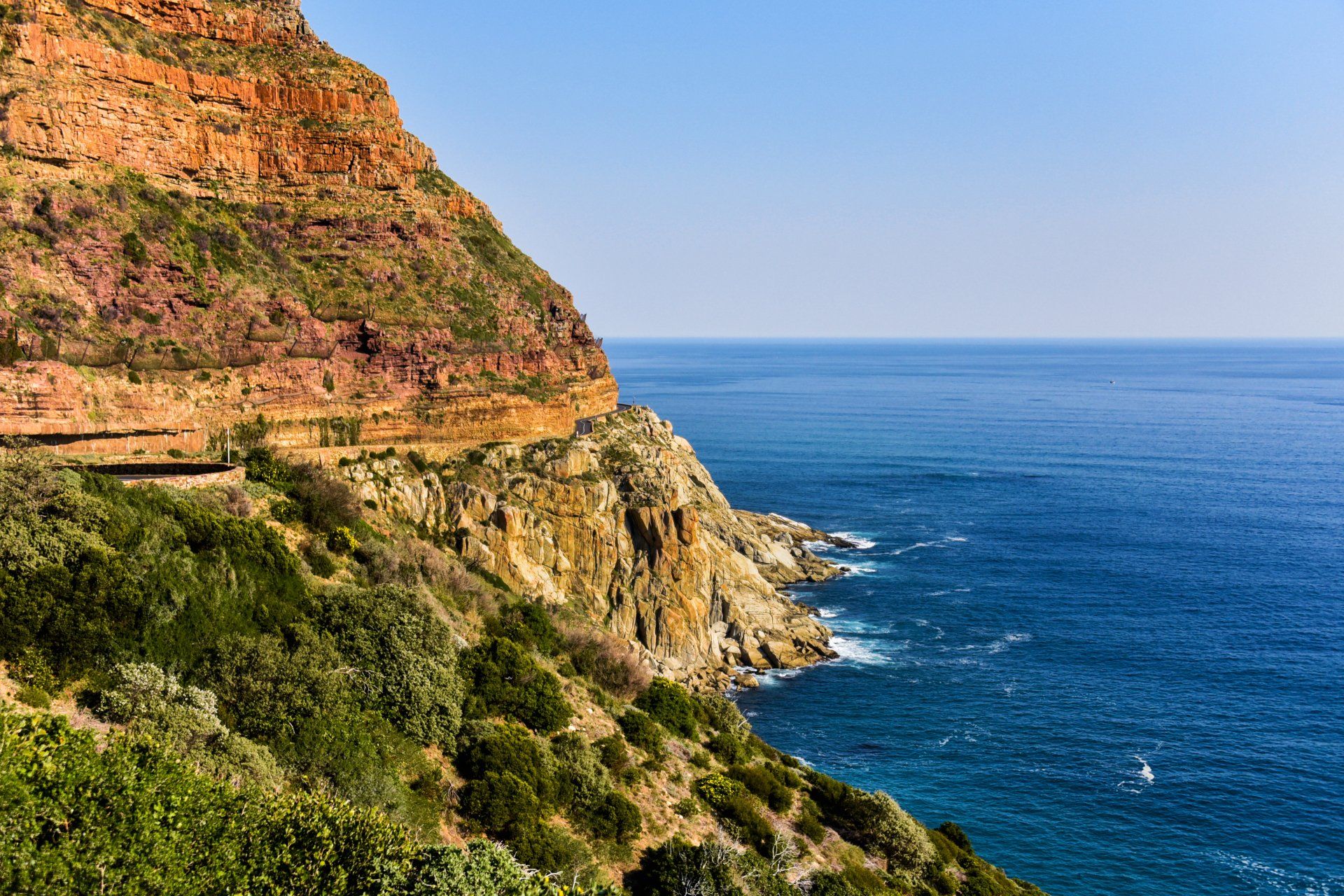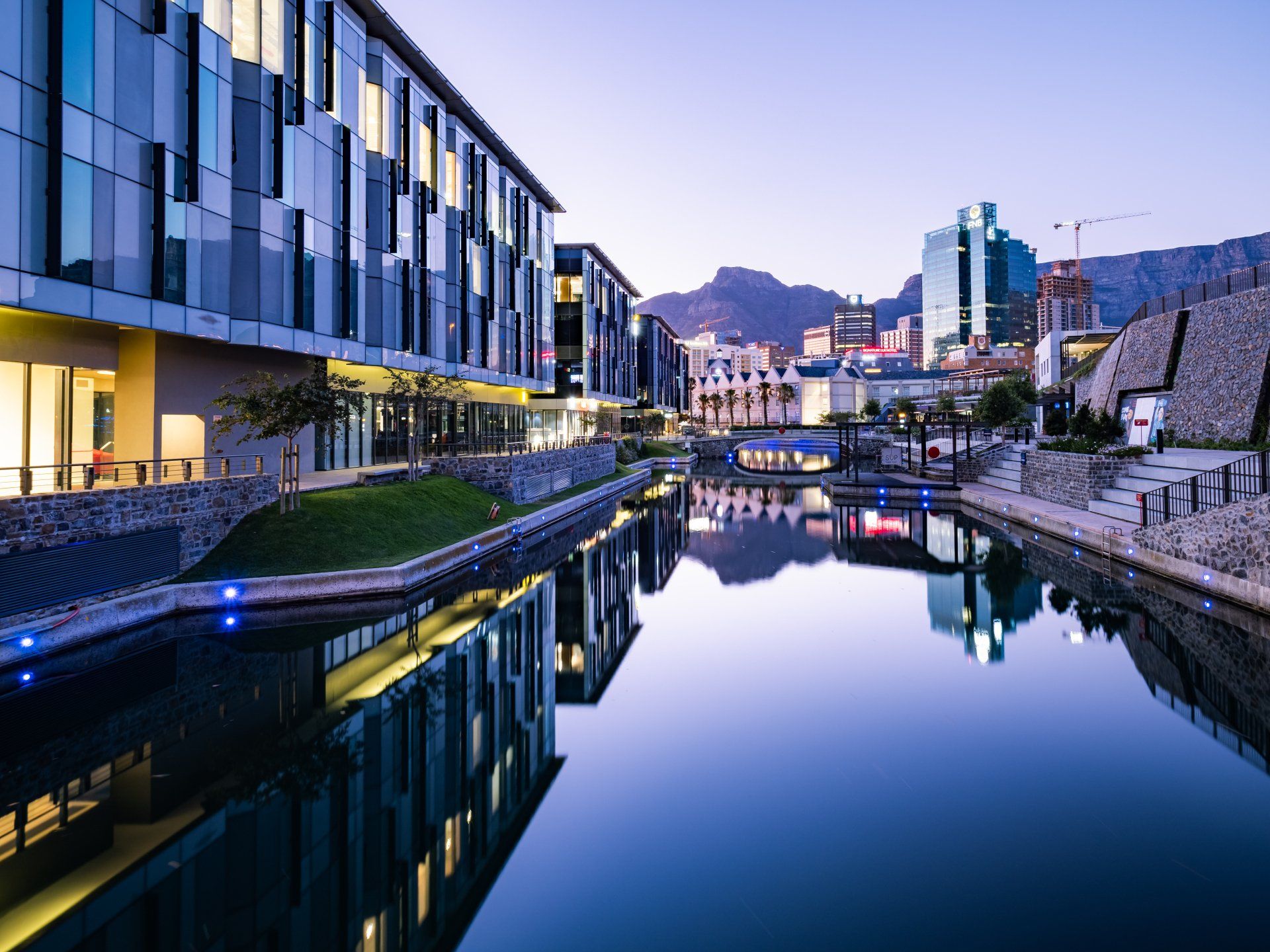Welcome in Cape Town
Weather and climate
Cape Town experiences a Mediterranean climate, with hot, dry summers (December to February) and mild, wet winters (June to August). Summer temperatures range from 20°C to 30°C (68°F to 86°F), while winter temperatures average around 7°C to 18°C (45°F to 64°F). The city enjoys plenty of sunshine throughout the year, making it a popular destination regardless of the season.
Accommodations
Popular accommodations in Cape Town include luxury hotels along the Victoria & Alfred Waterfront, such as the One&Only Cape Town and the Table Bay Hotel. Boutique guesthouses in neighborhoods like Camps Bay, Sea Point, and Green Point offer charming and cozy stays. Additionally, there are budget-friendly hostels and guesthouses in the city center and Observatory area.
Travel advice and safety
Cape Town is generally safe for tourists, but it's essential to take precautions against petty theft and avoid displaying valuable items in public. Exercise caution, especially when walking alone at night, and be aware of your surroundings. Stick to well-lit areas and use reputable transportation options.
Activities and attractions
Key attractions in Cape Town include the iconic Table Mountain, reachable by cable car or hiking trail, the historic Robben Island, where Nelson Mandela was imprisoned, and the scenic Cape Peninsula Drive, which includes stops at Cape Point and Boulders Beach to see African penguins. Visitors can also explore the vibrant neighborhoods of Bo-Kaap and Woodstock for their colorful houses and street art.
Local cuisine and restaurants
Recommended eateries in Cape Town include The Test Kitchen for fine dining and innovative cuisine, The Pot Luck Club for tapas-style dishes with panoramic views, and the Gold Restaurant for a cultural dining experience featuring traditional African dishes and live entertainment. Don't miss trying local specialties like bobotie, braai (barbecue), and seafood dishes.
Transport
Taxi fares in Cape Town vary depending on the distance traveled and the time of day, but average rates start at around R10 to R20 per kilometer. Uber is also available in Cape Town and offers a convenient and often more affordable alternative. Public transportation, including buses and trains, is available, with fares starting at around R10 for a single trip.
Currency and payment
The currency used in South Africa is the South African Rand (ZAR). Credit cards are widely accepted in most establishments, but it's advisable to carry some cash, especially for smaller purchases and in rural areas. ATMs are readily available throughout the city for withdrawing cash.
Language and communication
The official languages of South Africa are English, Afrikaans, isiXhosa, isiZulu, and others. English is widely spoken and understood, particularly in urban areas like Cape Town. However, learning a few basic phrases in Afrikaans or isiXhosa can be appreciated by locals.
Culture and local customs
South African culture is diverse and influenced by various ethnic groups and traditions. It's customary to greet people with a handshake and maintain eye contact during conversations. When visiting someone's home, it's polite to bring a small gift, such as wine or chocolates. Tipping is common in restaurants and for services like taxis and tour guides.
Packing list
When visiting Cape Town, consider packing sunscreen, sunglasses, a hat, and comfortable walking shoes for exploring the city and its attractions. Bring layers, as the weather can change quickly, and include a light jacket or sweater for cooler evenings. A reusable water bottle is also recommended to stay hydrated.
Budgeting
The average daily budget for a mid-range traveler in Cape Town ranges from R800 to R1500, covering accommodation, meals, transportation, and activities. However, costs can vary depending on the traveler's preferences and activities.
Health and medical facilities
Medical facilities in Cape Town include private hospitals like Netcare Christiaan Barnard Memorial Hospital and public hospitals like Groote Schuur Hospital. Pharmacies are widespread and stocked with essential medications. Travel insurance is recommended to cover any medical emergencies.
Travel tips and recommendations
Explore Cape Town's markets, such as the Neighbourgoods Market in Woodstock and the Bay Harbour Market in Hout Bay, for artisanal products and local cuisine. Take a scenic drive along Chapman's Peak Drive for breathtaking coastal views, and don't miss the opportunity to sample South African wines with a visit to nearby wine estates in Stellenbosch or Franschhoek.
Emergency contacts
In case of emergencies, dial 10111 for police assistance and 10177 for medical emergencies in South Africa.
Internet and communication
Major telecom providers in South Africa include MTN, Vodacom, Cell C, and Telkom. SIM cards and prepaid data packages are available for purchase at airports, convenience stores, and mobile phone shops. WiFi is also widely available in hotels, restaurants, and cafes throughout Cape Town.
Submit your travel inquiry here
Thank you for contacting us.
We will get back to you as soon as possible.
We will get back to you as soon as possible.
Oops, there was an error sending your message.
Please try again later.
Please try again later.











